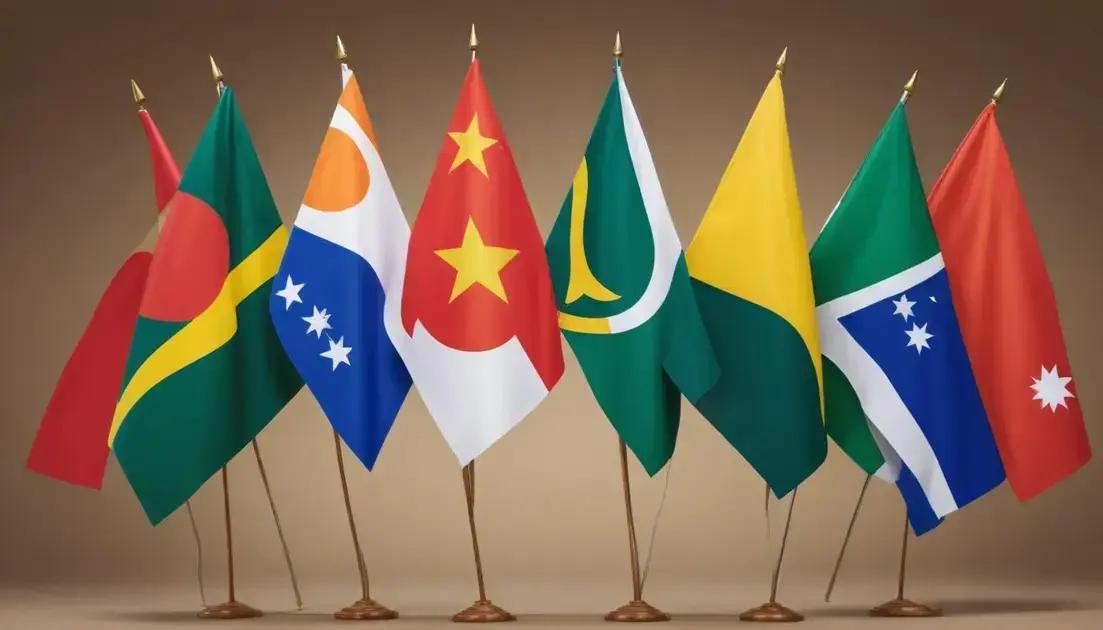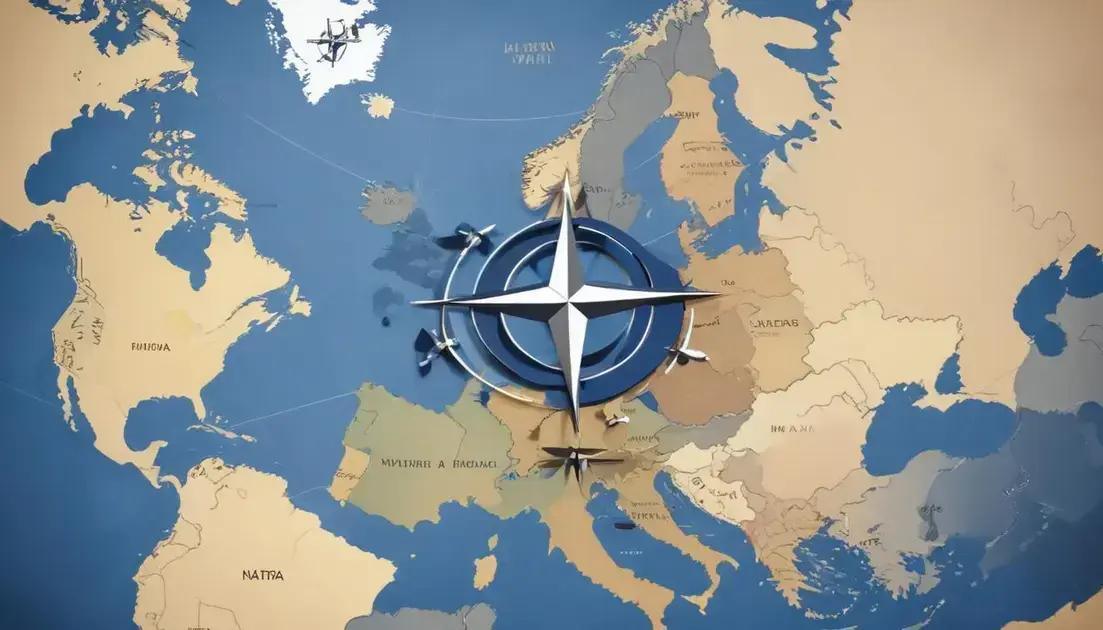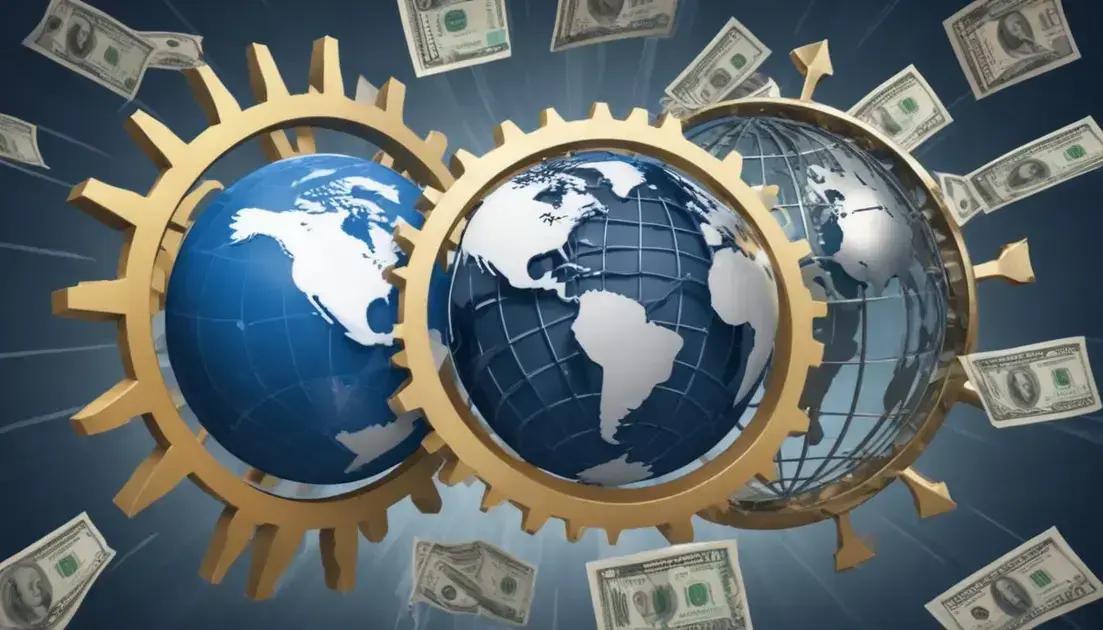
BRICS: the new economic power of the Global South
BRICS, a coalition of Brazil, Russia, India, China, and South Africa, is reshaping global economics by promoting trade among its members and challenging Western dominance. Each nation brings unique strengths, from China’s manufacturing power to India’s tech industry. While they face challenges like economic inequality and political differences, their future prospects include increased collaboration, investment in technology, and addressing environmental concerns. As BRICS grows, it aims to create a more balanced global economy and enhance its influence in international relations.
Have you heard about BRICS? This coalition is shaking things up on the global stage and challenging the old guard. Let’s dive in!
Understanding BRICS
Understanding BRICS is key to grasping its impact on the global economy. BRICS stands for Brazil, Russia, India, China, and South Africa. These nations come together to challenge the traditional economic powerhouses.
Each country has a unique economy. For example, Brazil is rich in natural resources, while India has a growing tech industry. Russia is known for its energy resources, and China is a powerhouse in manufacturing. South Africa adds its strength with mining and tourism.
BRICS nations work together to boost trade and investment among themselves. This partnership helps them get stronger on the world stage. They also share ideas and strategies to solve common problems, like poverty and climate change.
By pooling their resources, BRICS is making moves to reshape global trade. This is a direct challenge to Western dominance. More countries are now looking to BRICS for new opportunities. As they grow, understanding the dynamics of this coalition becomes vital for businesses and nations alike.
As consumers, we should also pay attention to BRICS. The products and services offered by these countries can affect our daily lives. From the electronics we use to the food we eat, BRICS is part of the picture.
The Economic Impact of BRICS
The Economic Impact of BRICS is significant in today’s global market. This coalition plays a vital role in reshaping how countries trade and interact. BRICS nations have unique strengths that boost their economies.
For instance, China is a major manufacturer and exporter. It supplies products to many parts of the world. India, on the other hand, has a fast-growing technology sector. Its software companies are well-known globally. Brazil and Russia contribute heavily with their natural resources, like oil and minerals.
When these countries collaborate, they create new trade routes and opportunities. They often bypass traditional Western markets. This shift can lead to lower prices for consumers. With more choices available, consumers can find better deals.
Investments among BRICS countries are also on the rise. They are building infrastructure, like roads and ports, which helps in trade. Increased investments create jobs and promote economic growth within these nations.
Moreover, BRICS countries aim to support each other during tough times. They formed a development bank to fund projects that benefit the members. This cooperation can lead to more stability in their economies.
The impact of BRICS goes beyond just business. It influences global policies and alliances. As they grow stronger together, they can challenge existing power structures.
Challenges Faced by the BRICS Nations
Challenges Faced by the BRICS Nations are significant and complex. While these countries work together, they also face some tough issues. One major challenge is economic inequality between the members. Each nation has its own strengths and weaknesses.
For example, while China and India are growing quickly, Brazil faces economic downturns. This can create tension within the group. Each country must find ways to balance their needs while working together. Finding common ground can be tricky.
Another challenge is political differences. Each BRICS nation has its own political system and leadership style. Issues like governance and human rights can lead to disagreements. These differences can make it harder to present a united front to the world.
BRICS countries also deal with external pressures. Global economic changes can affect their plans and partnerships. Events like trade wars or sanctions from other nations can pose risks. They must adapt quickly to these situations to stay competitive.
Environmental concerns also play a crucial role. As BRICS nations grow, they face challenges like pollution and climate change. They need to find a way to develop their economies while also being responsible custodians of the environment.
Lastly, managing their relationships with Western nations can be difficult. As BRICS gains influence, traditional powers may react. These interactions can create challenges for diplomatic relations and trade.
Future Prospects of BRICS
Future Prospects of BRICS appear promising and full of potential. As these nations continue to collaborate, their influence on the global stage grows. The BRICS alliance is likely to expand its economic reach by promoting trade with other countries.
New partnerships could form as more emerging markets look to BRICS for support. By working together, these nations can challenge Western dominance in global trade. This unity may create a more balanced world economy.
Innovation is also on the horizon. BRICS countries are investing in technology and renewable energy. These investments could lead to breakthroughs that benefit their economies and the environment. By focusing on sustainable development, they can address climate change while growing their economies.
Education and skill development will be crucial for BRICS’ future. By enhancing their workforce, they can compete better globally. Increased collaboration in education can help share knowledge and resources among member nations.
Additionally, the role of the BRICS New Development Bank is expected to grow. This institution can provide funding for projects that foster economic growth. The support of this bank can help build infrastructure and improve lives in member countries.
As BRICS nations build stronger ties, their voice in global politics will grow louder. This could lead to more collective action on pressing issues like poverty, health care, and security. With time, BRICS might reshape international norms and policies, making them a significant player in global affairs.
Conclusion
In conclusion, the future of BRICS is bright and full of opportunities. As these countries work together, they can create a stronger voice in the global economy. By focusing on trade, innovation, and sustainable practices, BRICS nations can transform challenges into advantages.
Collaboration among member countries will help build a better foundation for growth. Investing in education and technology will prepare their workforce for the future. Additionally, the support from the BRICS New Development Bank will fuel projects that benefit everyone.
Overall, the potential for BRICS to reshape global dynamics is immense. As they continue to unite, their influence will only grow, creating a more balanced world for all. Embracing these changes will not only benefit BRICS nations but also contribute to a more equitable global community.


